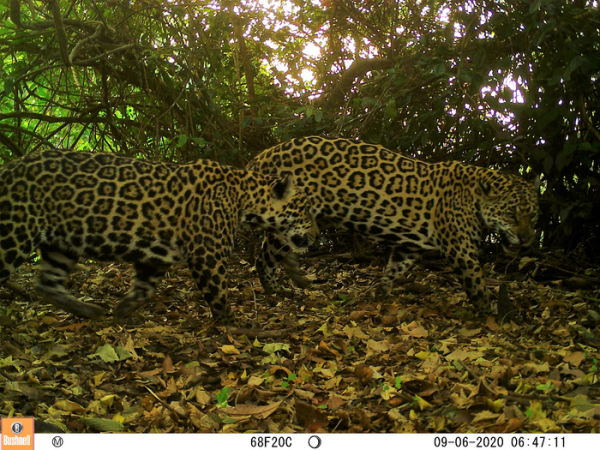Two jaguars, caught with a camera trap survey, walk through the Brazilian Amazon rainforest.rom jaguars and ocelots to anteaters and capybara, most land-based mammals living in the Brazilian Amazon are threatened by climate change and the projected savannization of the region. That’s according to a study published in the journal Animal Conservation by the University of California, Davis.
The study found that even animals that use both forest and savanna habitats, such as pumas and giant armadillos, are vulnerable to such changes. It also illustrates how species and lands protected through local conservation efforts are not immune to global climate change.
“We’re losing Amazon forest as we speak,” said lead author Daniel Rocha, who conducted the research as a doctoral student in the UC Davis Department of Wildlife, Fish and Conservation Biology. “The Amazon’s biodiversity is very susceptible to climate change effects. It’s not just local; it’s a global phenomenon. We cannot stop this just by law enforcement, for example. These species are more susceptible than we realized, and even protected areas can’t protect them as much as we thought.”
Read more at: University of California - Davis
Two jaguars, caught with a camera trap survey, walk through the Brazilian Amazon rainforest. (Photo Credit: Daniel Rocha/UC Davis)


